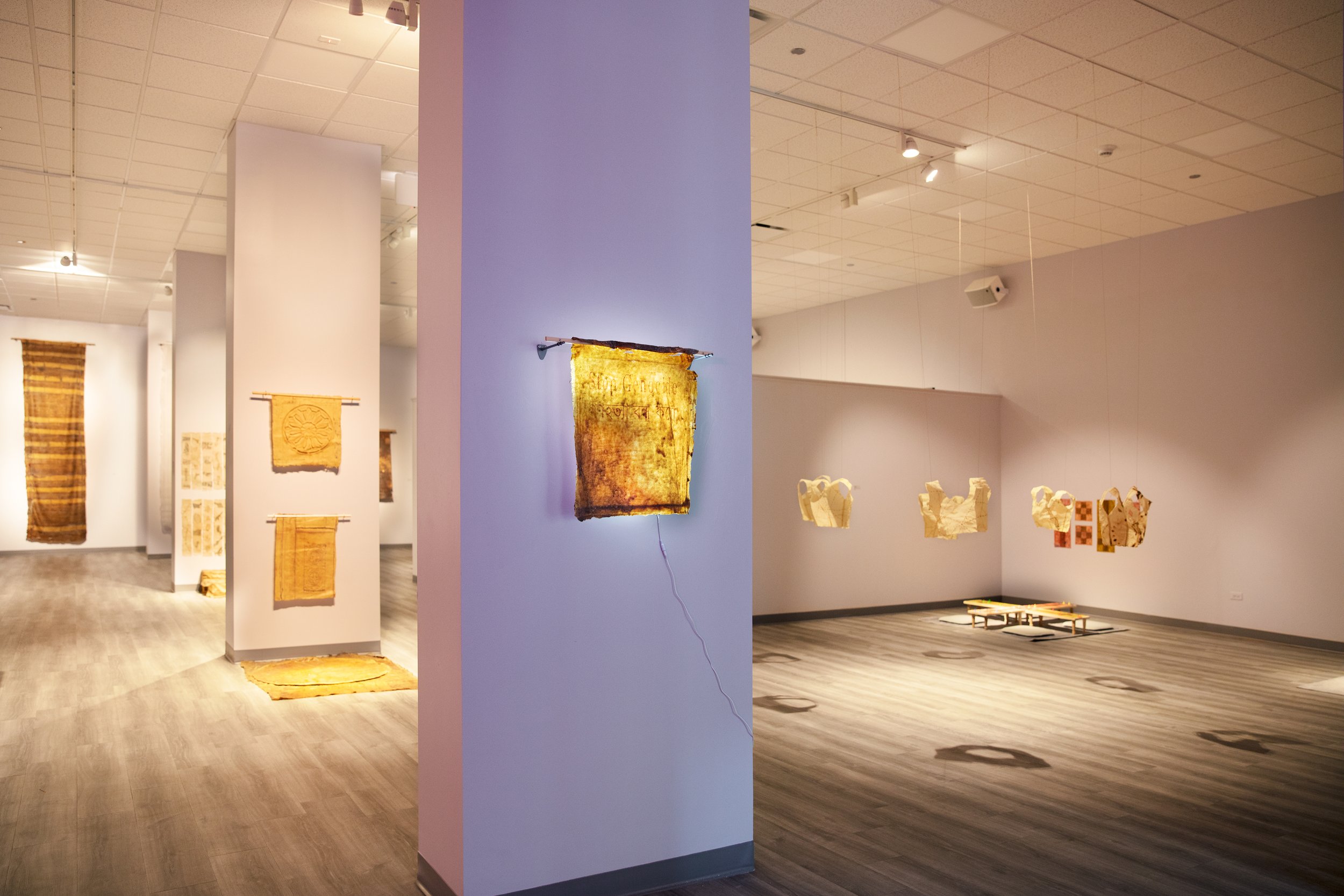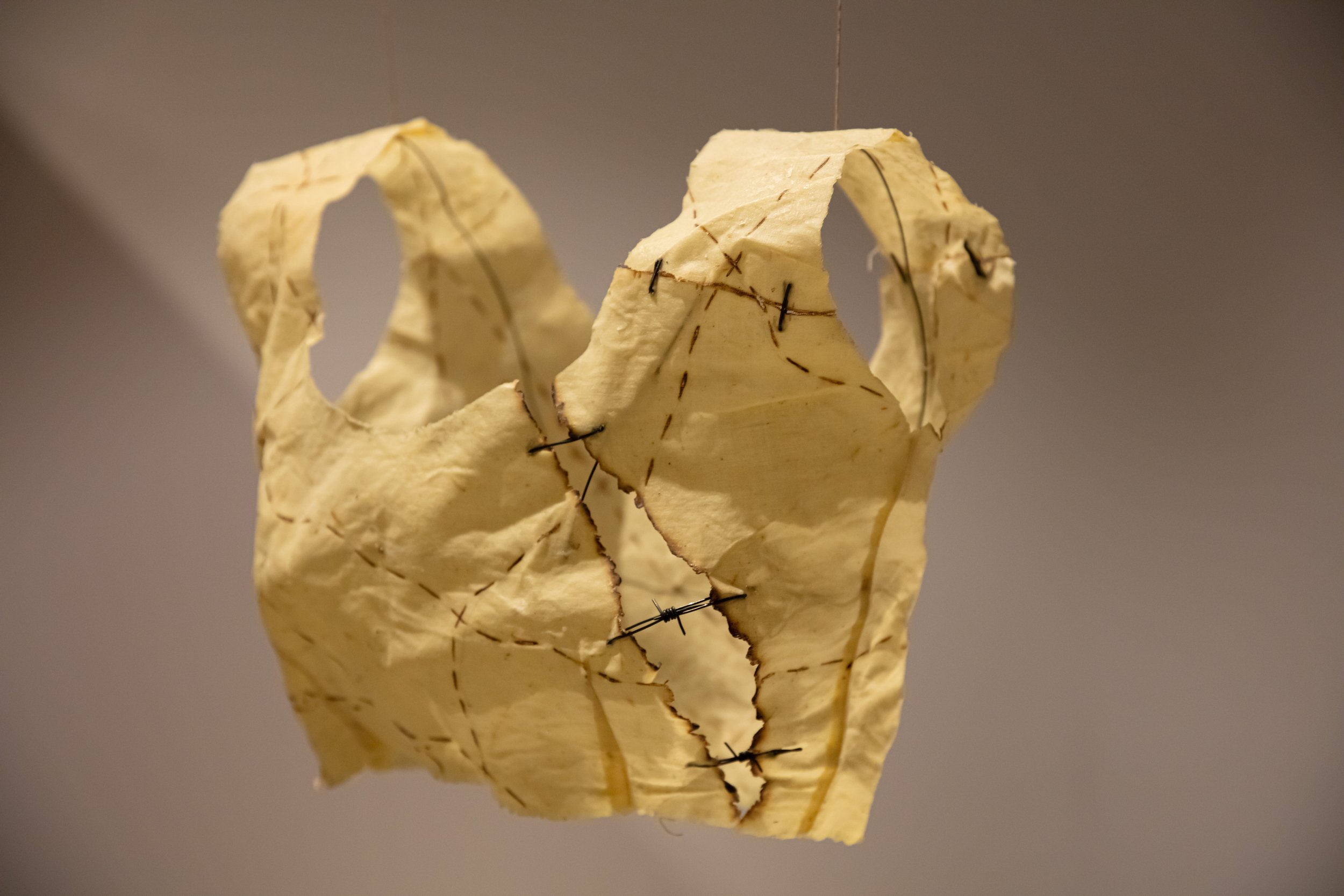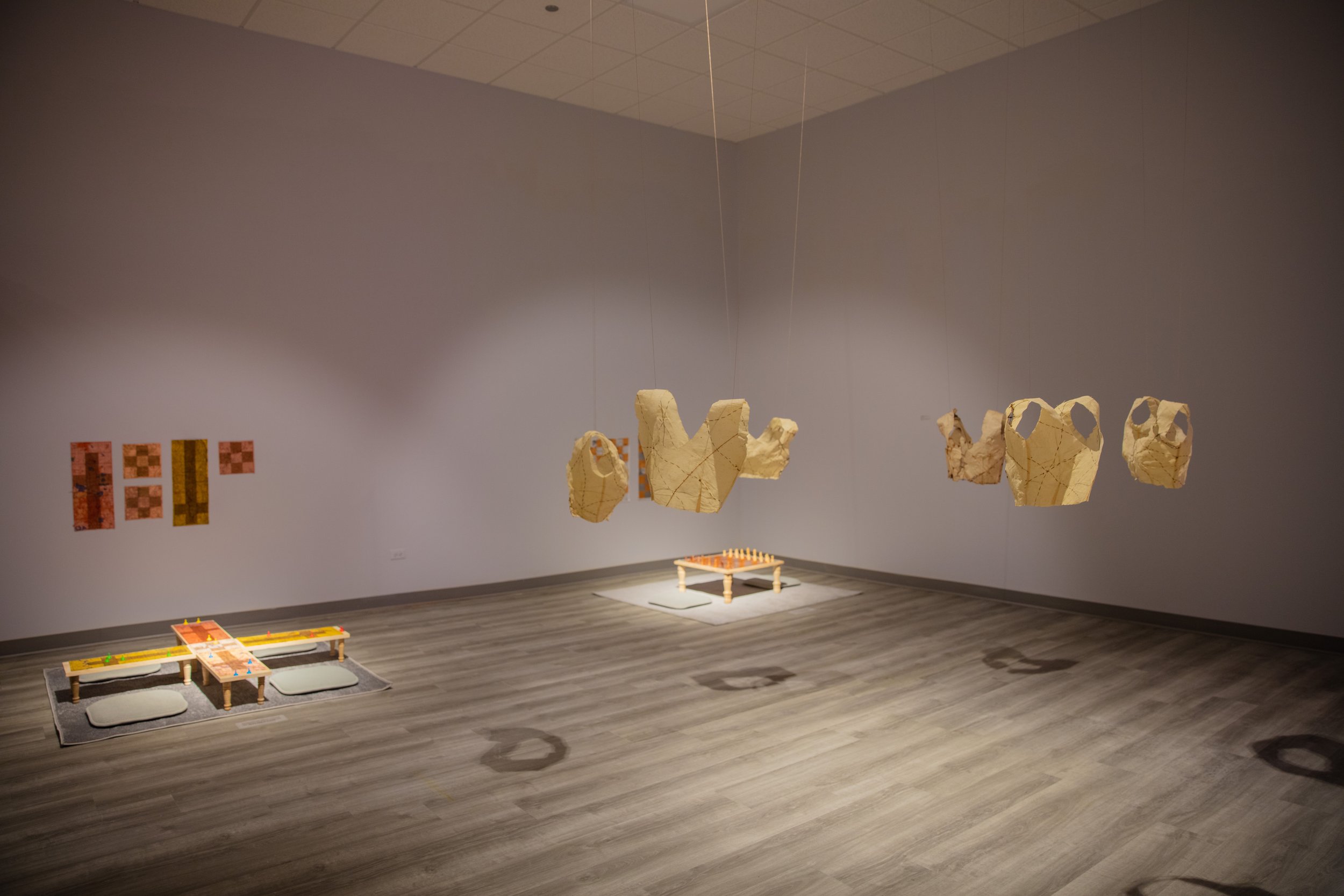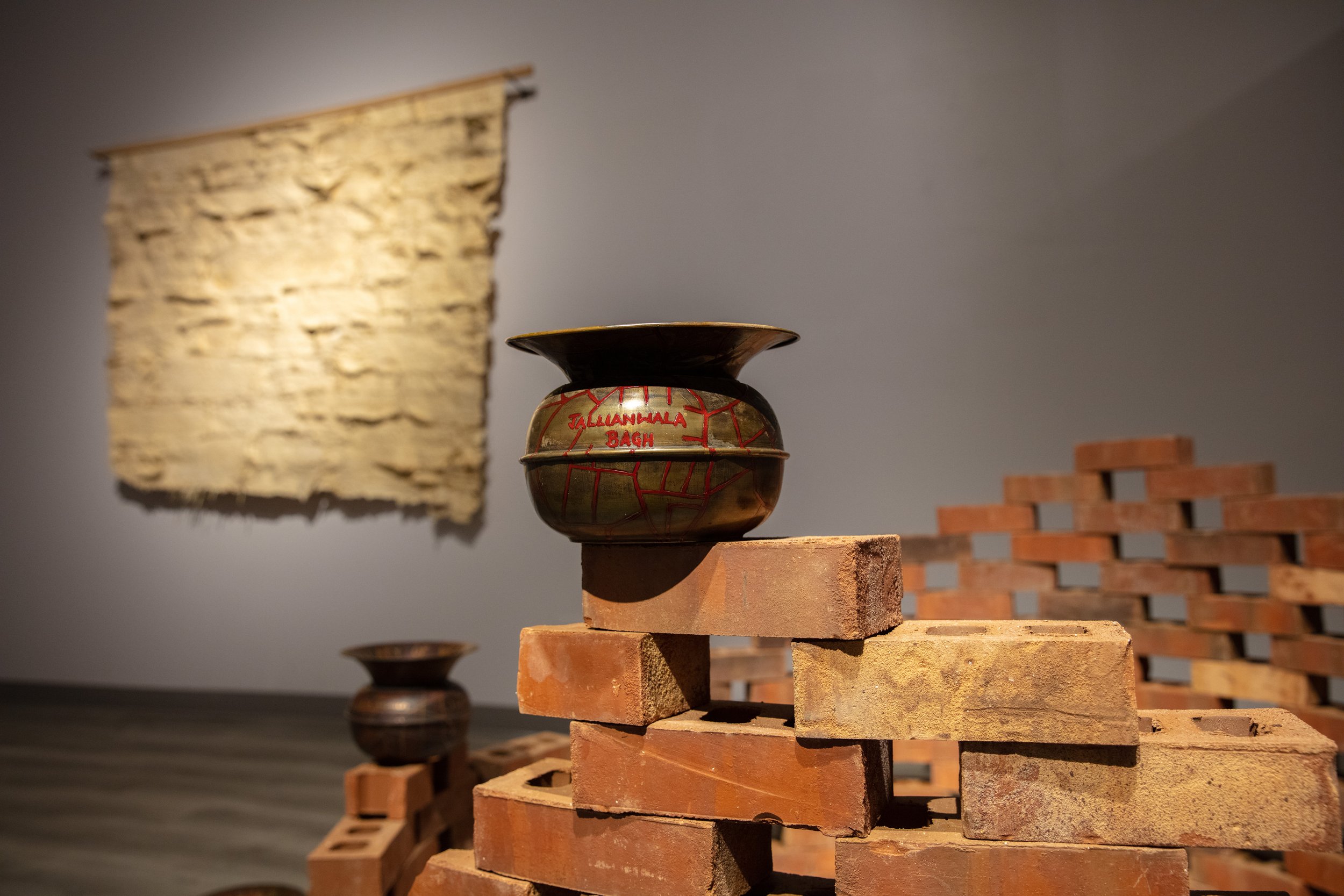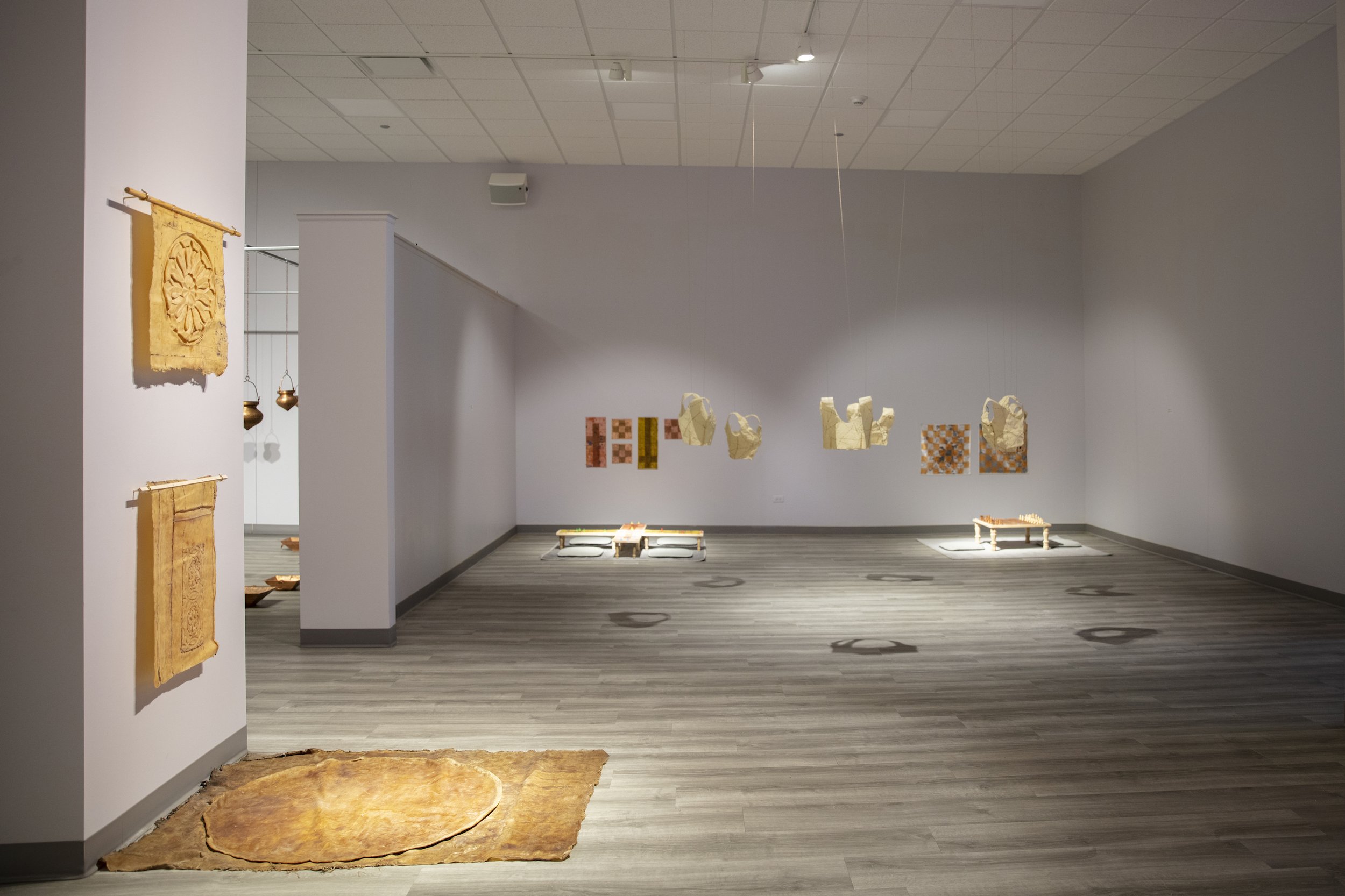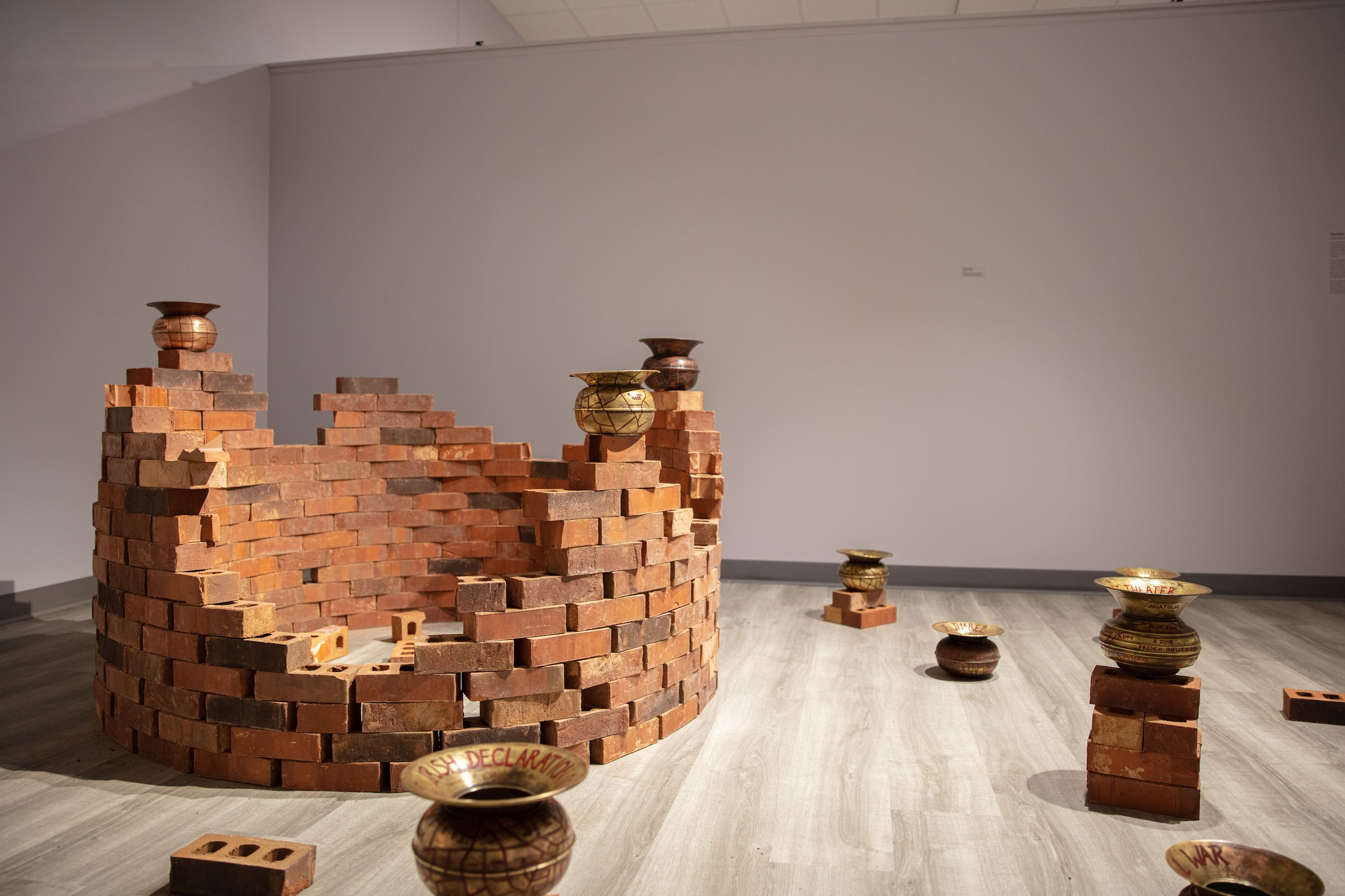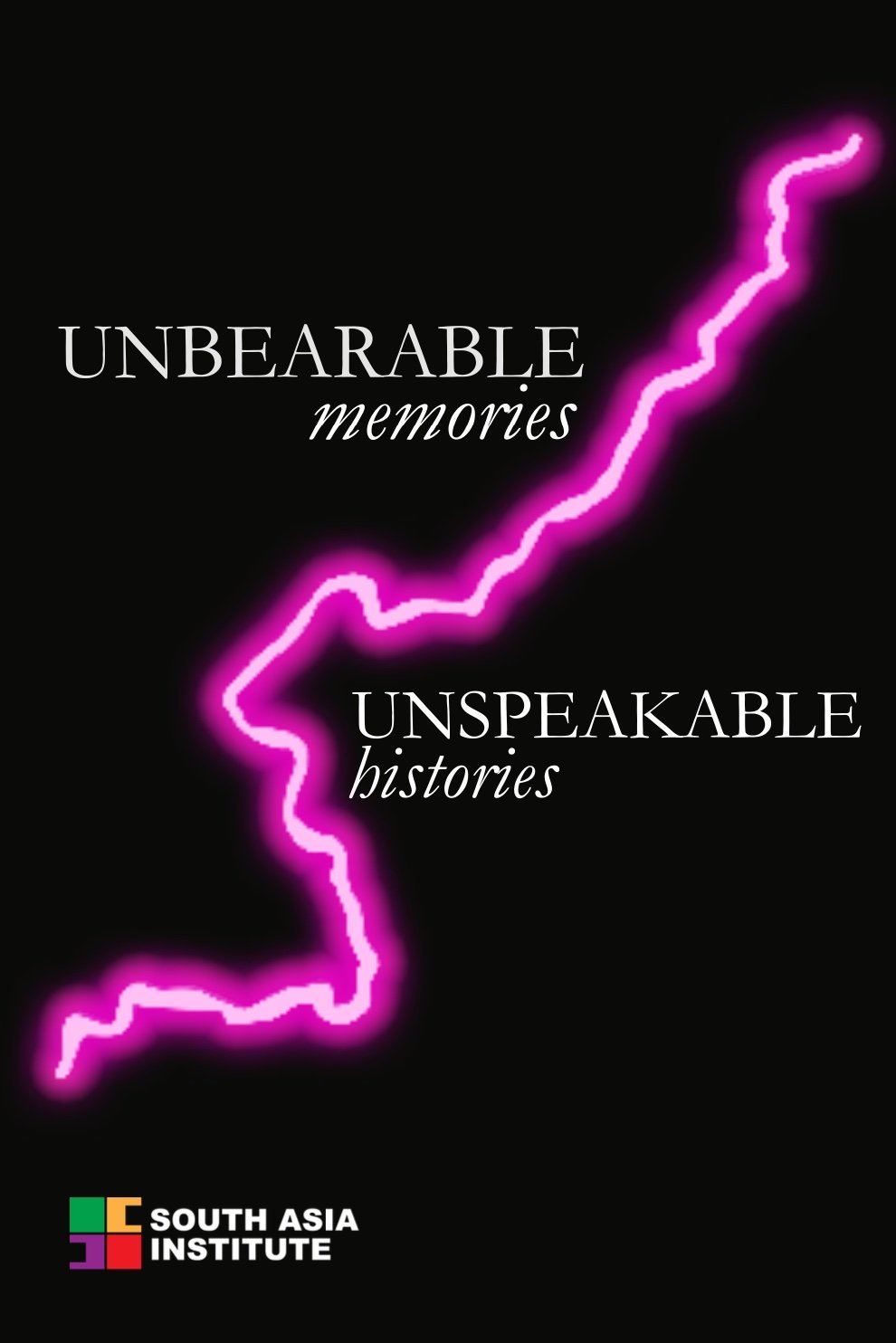Unbearable Memories, Unspeakable Histories
THE PARTITION ANTI-MEMORIAL PROJECT
AUGUST 06 - DECEMBER 10, 2022
Pritika Chowdhry’s exhibition “Unbearable Memories, Unspeakable Histories: The Partition Anti-Memorial Project” investigates the Partition of India in 1947, which created Pakistan, and eventually, Bangladesh in 1971. Chowdhry’s experiential art installations are temporary anti-memorials to the Partition. To commemorate the 75th anniversary of the Partition, several of the works are being exhibited at the South Asia Institute in Chicago from August to December, 2022. The exhibition’s title, alludes to the painful and silenced narratives that have been elided from mainstream discourses of the Partition.
The Partition triggered the largest and most rapid migration in human history. Over 20 million people were displaced in an unprecedented mass migration in history. Approximately 2 million people died in the communal violence across the new border, called the Radcliffe Line and over 300,000 women were abducted during the Partition riots.
Often called the Holocaust of South Asia, the Partition is central to modern identity and geopolitics in the Indian subcontinent. Pakistani historian Ayesha Jalal has called Partition “the central historical event in twentieth century South Asia.” In her words, “A defining moment that is neither beginning nor end, partition continues to influence how the peoples and states of postcolonial South Asia envisage their past, present and future.”
Struck by the widespread lack of awareness of Partition’s enduring impact, Chowdhry began creating artworks in 2007 to bear witness to the trauma of the Partition and its effects through the lens of diasporic post-memory. Known as the Partition Anti-Memorial Project the body of work seeks to address and examine the many facets of the Partition of India from a counter-memory perspective.
ABOUT THE ARTIST
Pritika Chowdhry is a sociopolitical, feminist artist, who creates large-scale sculptures and site-sensitive installations that reference the body to memorialize unbearable memories. Having personally witnessed the intergenerational effects of geopolitical trauma, she has dedicated her work to cataloging the violence of colonialism/imperialism alongside global acts of resistance.
Since 2007, she has built her oeuvre through the Partition Anti-Memorial Project, a research-based project that excavates subjugated knowledge about the 1947 Partition of India and the 1971 Bangladesh Liberation War to build several anti-memorials.
Her work aims to highlight historically marginalized female voices in the representation of Partition while contextualizing the event’s global repercussions. As an interdisciplinary artist, she migrates between fibers, latex, paper, clay, glass, metal, wood, poetry, drawing, and literary references. She is drawn to the cultural significance and symbolic possibility opened up in using different materials.
Her anti-memorials are quietly provocative, temporary, and incorporate visceral materials and soundscapes. Although women's abduction during the partition of India in 1947 is one of the nation’s most painful memories, their experiences are often excluded from discussions of Partition’s impact. By locating nationhood within women that have been subject to brutal violence, her installations cut against nationalist and masculinist narratives of trauma and memory. Her goal is not to “speak for the women,” rather my experiential art installations invite viewers to bear witness, holding space for mourning, remembrance, and repair.




